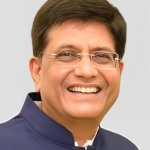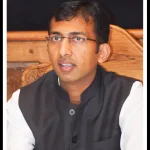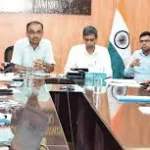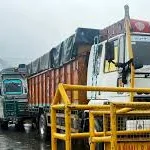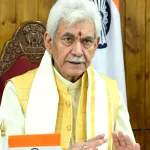Jammu and Kashmir is witnessing a full blown election campaign for the formation of the Assembly after nearly a decade. Stalwarts of the national political parties are visiting both Jammu and Kashmir regions to woo the voters in their favour. Political bigwigs of the regional parties are also reaching out to the electorate to garner their support. Spectacle of banners and hoardings that catches the eyes of the people indeed makes them rejoice. As it brings back the memories of the times when elections were celebrations and amusement for the people. Democracy is back on rails and gives hope to the people who have witnessed the worst bloodshed and destruction due to the ethno-religious conflict. It created a governance deficit besides the mismanagement of law and order issues. Political spats between the leaders of the various parties are the essence of a healthy democracy. If the criticism is made for the sake of keeping the well-being of the masses in mind then it strengthens the democracy. But on the other hand if the allegations are raised to score the debating points then it does not serve the larger purpose of reaching out to the people on the ground. It only breeds animosity. The more the number of political players and the parties participate in the elections the more vibrant is the democratic order. It gives the people enough choice to select their desired candidates. The assembly Elections that are being held at present in 2024 are very significant for the future and development of Jammu and Kashmir. As there has been a drastic change in the overall political undercurrents in the newly created Union Territory (UT).Things are becoming much clear with culmination of the each phase of elections that the new permutations and combination will emerge once the results are declared. Though the traditional parties will play a significant role. The mood on the ground is mixed with people choosing their candidates for different reasons. Independents having the support of various ideologically motivated groups too are galvanising the public opinion in Kashmir. This is indeed posing a challenge to the mainstream parties. BJP President J P Nadda has asserted in a press conference that “It is a historic occasion when the people of Jammu and Kashmir have rejected bullets and chosen the path of ballots. They have given a befitting reply to bullets”. He has further said, “The polling (in the first two phases) passed off peacefully. Unlike previous elections, there was no violence, no firing, no terror attack.” He underlined that the youth in Kashmir have rejected terrorism. Substantiating this he remarked, “They have joined the national mainstream. Before the abrogation of Article 370 (of the Constitution), more than 300-400 youngsters would join terror ranks (every year) and would be declared terrorists. Today, there are just four. So based on data, I can confidently say that they have rejected terrorism and violence”. In a pincer attack on the Kashmir based parties NC and PDP besides the Congress, he said that these parties are “trying to revive the era of violence and bloodshed” in Jammu and Kashmir and also accused them of siding with the anti-India elements. He did not stop here and went ahead with saying that “They are supporting those activists who are working against the country. It has been mentioned in the NC’s manifesto that it will release terrorists (from jails), resume cross-border trade and talks with Pakistan. This is how the NC is supporting anti-India forces and the Congress is supporting it”. This statement has invited criticism from the National Conference leader and former Chief Minister of Jammu and Kashmir , Omar Abdullah. He has blamed the Central Government for the lower turn out in the second phase of polling. Nadda had said that Omar is bad at Mathematics. Nadda had said during the press conference that “If one wants to see the poll percentage, it used to be 6 to 8 per cent but today it is 58 to 60 per cent. If he was bad at mathematics, what could I do? There was 60 per cent voting in the first phase and 58 per cent in the second phase.” Earlier, Omar had said, “I was hoping for a little more turnout. Because there was no call for the boycott. There were no attacks. There was no attempt to suppress and threaten the voters. But I think the central government is also partially responsible for this situation. They have tried to present high turnout as a sign of normalcy at different places”. These electoral spats between the political players make it clear that the temperature are rising high and each statement is being observed at microscopic level. The question is: Are these elections for mere numbers after years of demoralisation for the democratic process? The answer is no. What matters is the intention of the people. After decades of turmoil people have numerous issues. These are both developmental and ideological. Jammu and Kashmir needs a comprehensive policy that can address the problems at multiple levels. Instead of scoring brownie points over one another. This is the time to identify the roles that both the national regional parties can play in tandem to reduce the woes of the people. Problems of the people in Jammu and Kashmir can only be solved when the national parties and the regional parties converge at least on one issue that in Jammu and Kashmir people want them to work in sync with each other. People are keenly watching the developments and are casting their votes in this Assembly Election with future insight. Hope the political parties are able to decode the mood of the masses for the betterment of India and Jammu and Kashmir.
Political Temperature Rises in J&K

Sign Up For Daily Newsletter
Be keep up! Get the latest breaking news delivered straight to your inbox.
By signing up, you agree to our Terms of Use and acknowledge the data practices in our Privacy Policy. You may unsubscribe at any time.
Leave a Comment Leave a Comment


